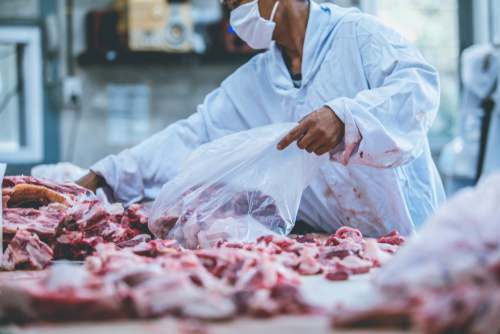The U.S. Department of Agriculture (USDA) is taking steps to support the enforcement of the Packers and Stockyards (P&S) Act, a 100-year old law designed to protect poultry and hog farmers and cattle ranchers from unfair and anti-competitive practices in the meat markets.

The USDA plans to introduce three rules in the months ahead. One is a rule that will provide greater clarity to strengthen enforcement of unfair and deceptive practices, undue preferences, and unjust prejudices. Another is a new poultry grower tournament system rule. The third is a rule to clarify that parties do not need to demonstrate harm to competition to bring an action under section 202 (a) and 202 (b) of the P&S Act.
“The pandemic and other recent events have revealed how concentration can take a painful toll on independent farmers and ranchers while exposing working family consumers to higher prices and uncertain output,” Agriculture Secretary Tom Vilsack said. “The Packers and Stockyards Act is a vital tool for protecting farmers and ranchers from excessive concentration and unfair, deceptive practices in the poultry, hog, and cattle markets, but the law is 100 years old and needs to take into account modern market dynamics. It should not be used as a safe harbor for bad actors. The process we’re beginning today will seek to strengthen the fairness and resiliency of livestock markets on behalf of farmers, ranchers, and growers.”
These proposals will support USDA’s efforts to ensure fairer and more resilient markets for farmers, ranchers, and producers. Last week, the USDA announced $4 billion in assistance as part of the Build Back Better initiative. Investments will include a mix of grants, loans, and innovative financing to address problems throughout the food supply chain. The investments will also include efforts to address the shortage of small meat processing facilities across the country and the necessary local and regional food system infrastructure needed to support them.